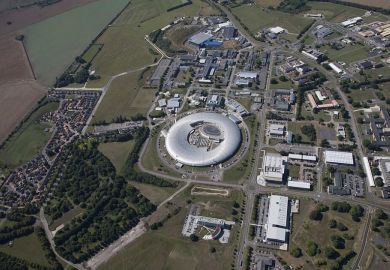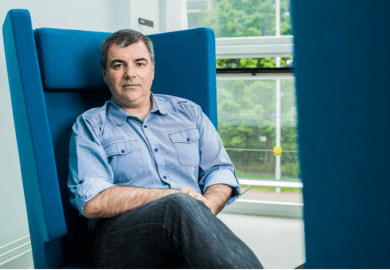A physicist who used moon rocks to help us understand the evolution of the solar system has died.
Christine Floss was born in Munich, Germany, in July 1961 but moved to the US at the age of five and grew up in West Lafayette, Indiana. Her path into science was unusual. After abandoning her ambitions to become a librarian, she studied German at Purdue University (1983) while trying out a range of other options to discover which career she wanted to pursue. An accountancy course made her realise that business was not for her, but she felt “hooked from the start” by an introductory module on geology and decided to embark on a second bachelor’s degree at Indiana University (1987).
A second turning point occurred when Abhijit Basu, a professor who she knew at Indiana, asked Professor Floss if she was interested in working on the moon rocks that had been brought back by astronauts. This led to a research project on the Apollo 16 regolith samples followed by a PhD in geochemistry at Washington University in St Louis (1991), where she examined the origin and formation of the rocks known as ferroan anorthosites and the meteorites called aubrites.
After completing her doctorate, Professor Floss spent five years as a research scientist at the Max Planck Institute for Nuclear Physics in Heidelberg, Germany, before returning to Washington University in 1996, where she became a leader in the university’s Laboratory for Space Sciences and was later promoted to research professor. Her later work explored ways of using extraterrestrial material such as meteorites, lunar rocks and interplanetary dust to illuminate the origin and evolution of the early solar nebula. She also took part in the 2014-15 Antarctic Search for Meteorites expedition.
“Christine was a highly regarded and successful principal investigator on numerous Nasa research proposals, particularly ones involving innovative research using state-of-the-art technologies such as nanoscale isotopic and elemental analysis,” said Thomas Bernatowicz, emeritus professor of physics at Washington University. “Not only was she one of the few women serving as a research professor in the physics department, but she also devoted her energies to the promotion of women in STEM fields at the university.”
Professor Floss was honoured with having an asteroid named after her. Professor Floss, who had struggled with addiction, died unexpectedly on 19 April. She is survived by three daughters and three grandchildren.
Register to continue
Why register?
- Registration is free and only takes a moment
- Once registered, you can read 3 articles a month
- Sign up for our newsletter
Subscribe
Or subscribe for unlimited access to:
- Unlimited access to news, views, insights & reviews
- Digital editions
- Digital access to THE’s university and college rankings analysis
Already registered or a current subscriber?




